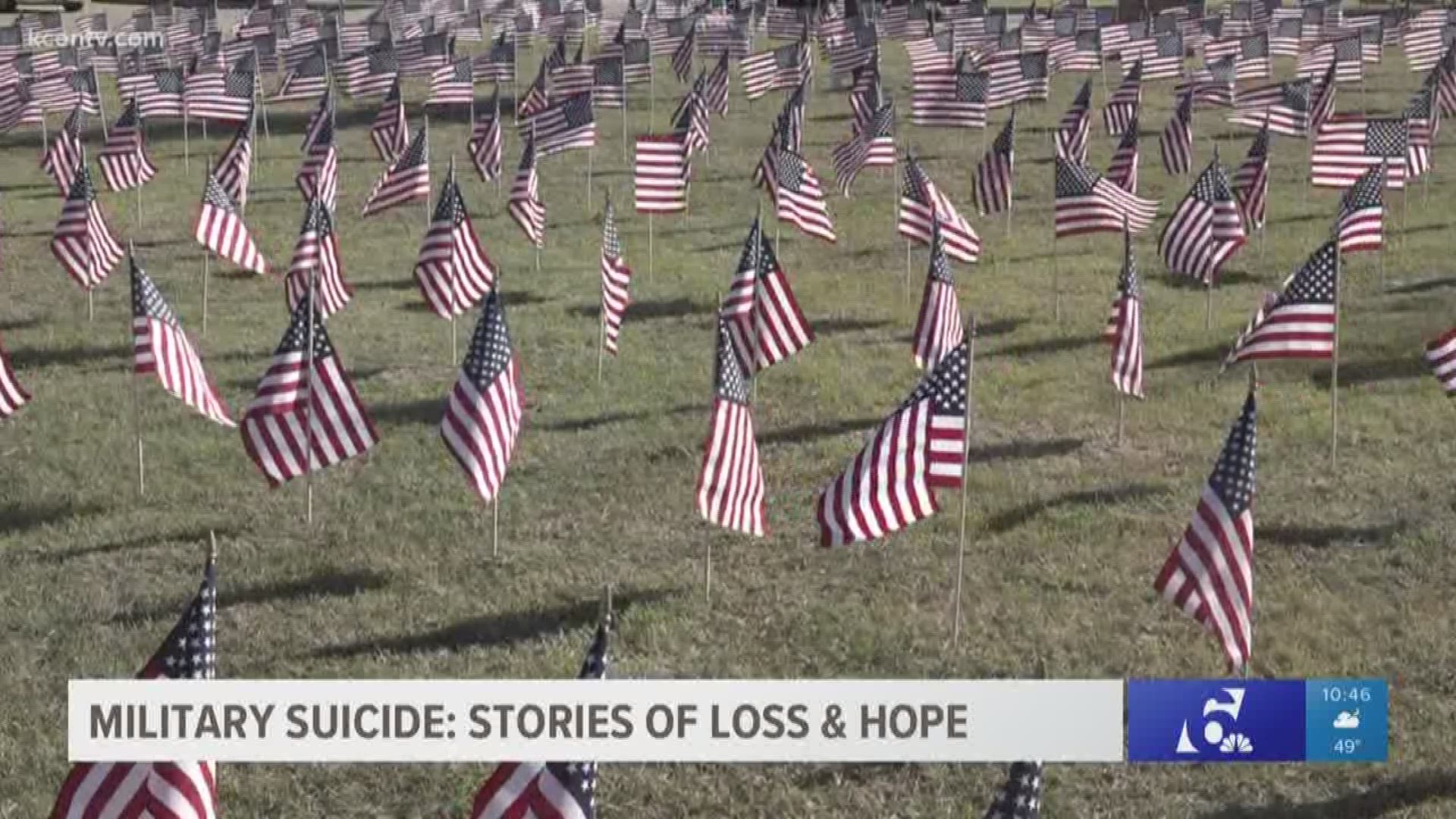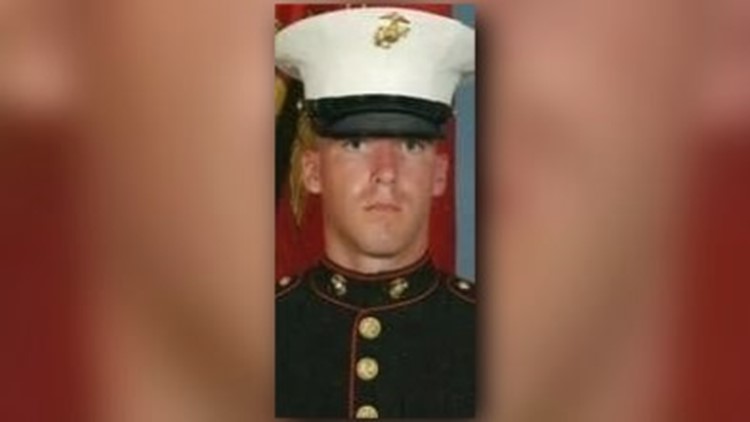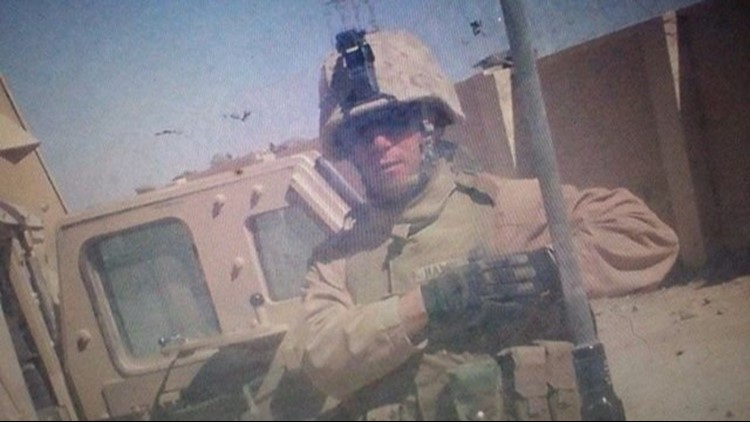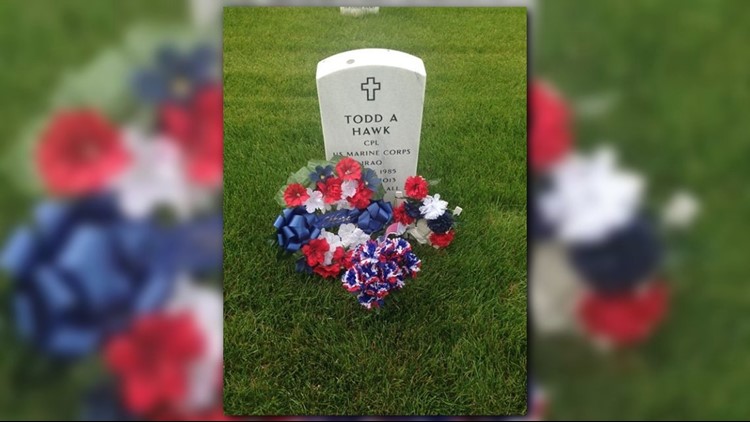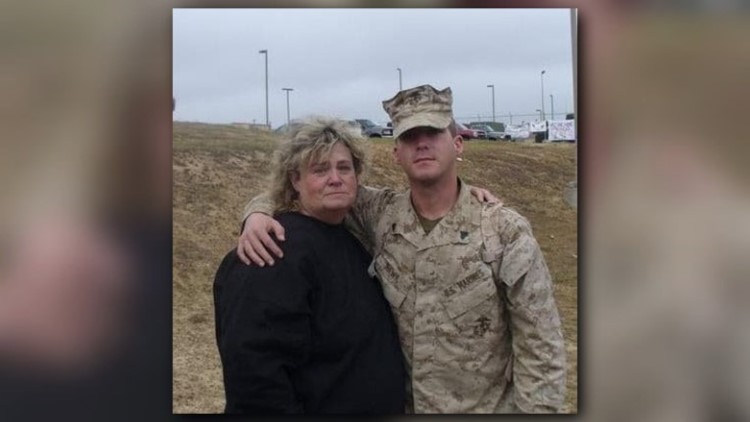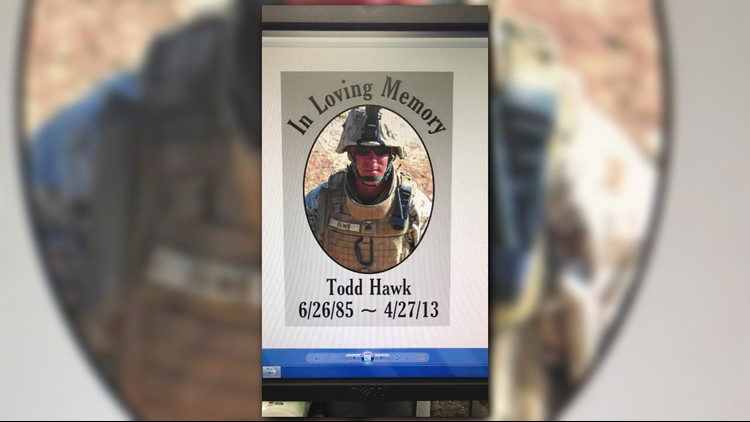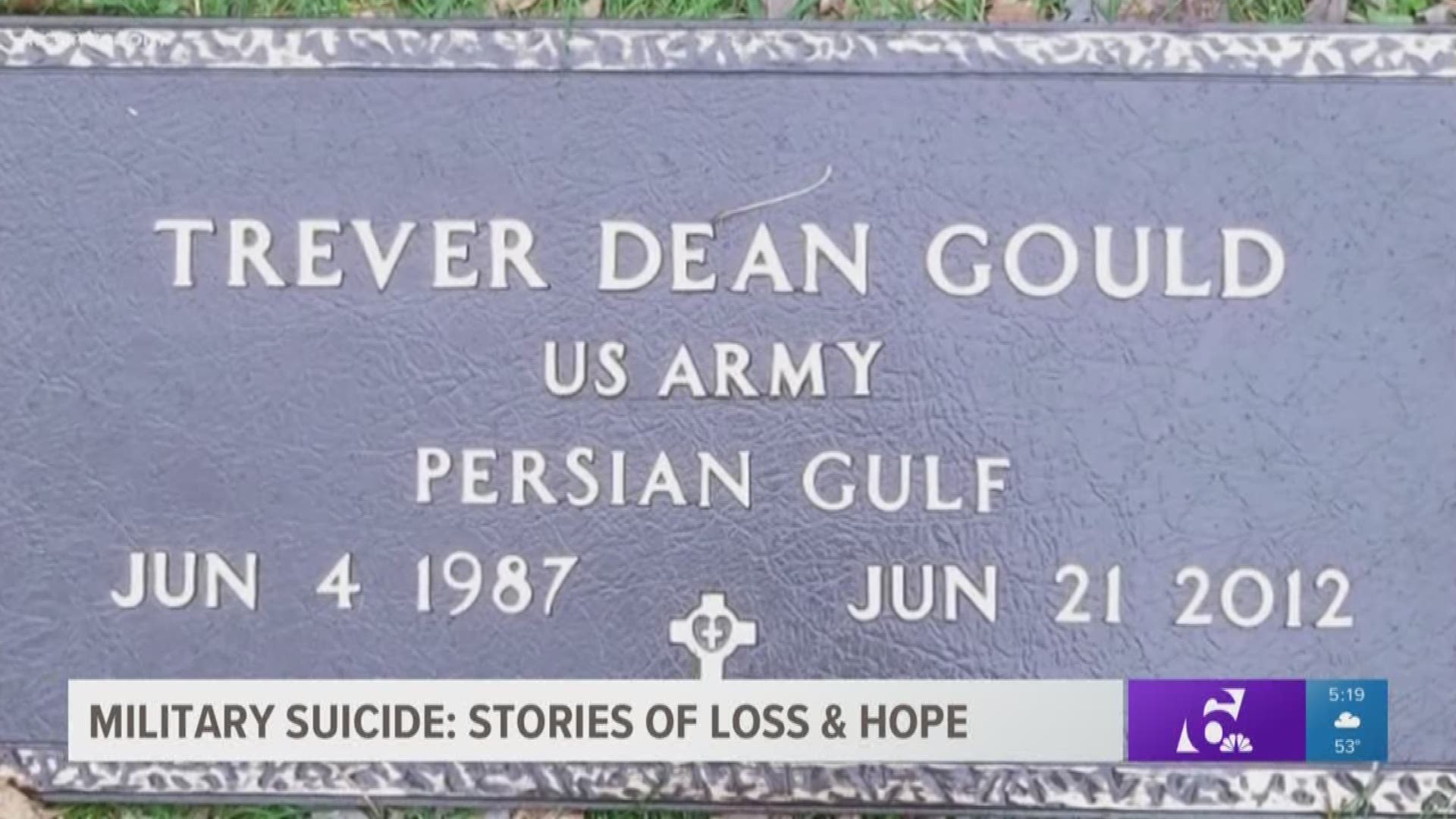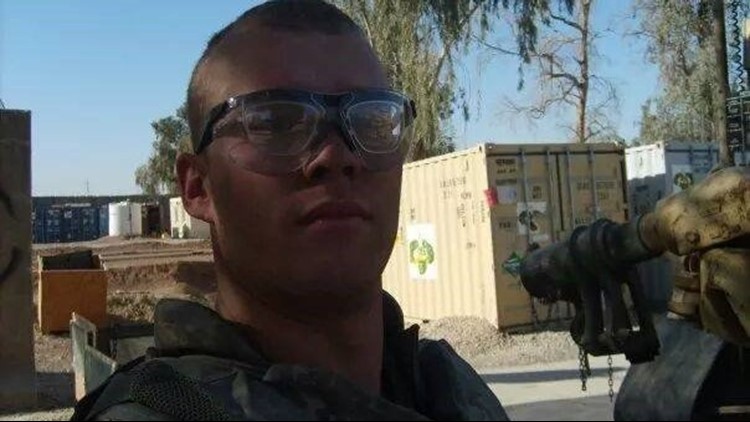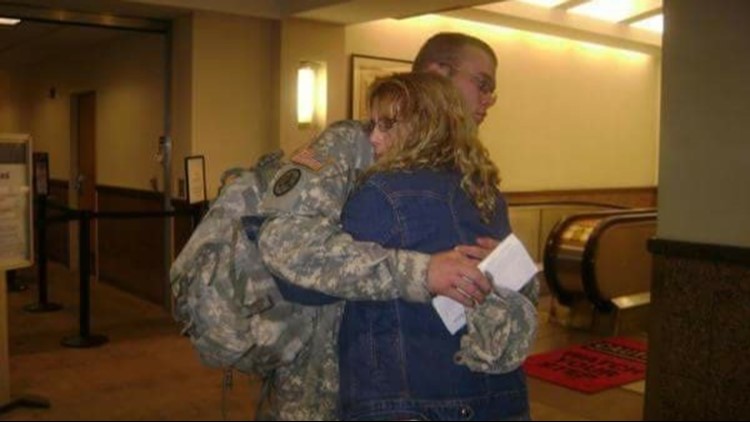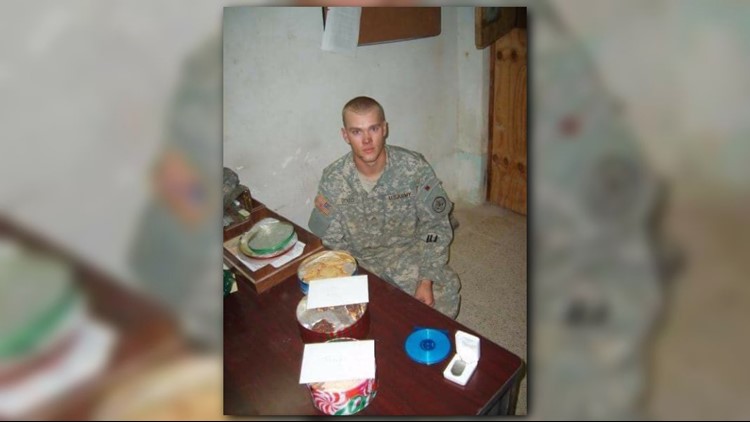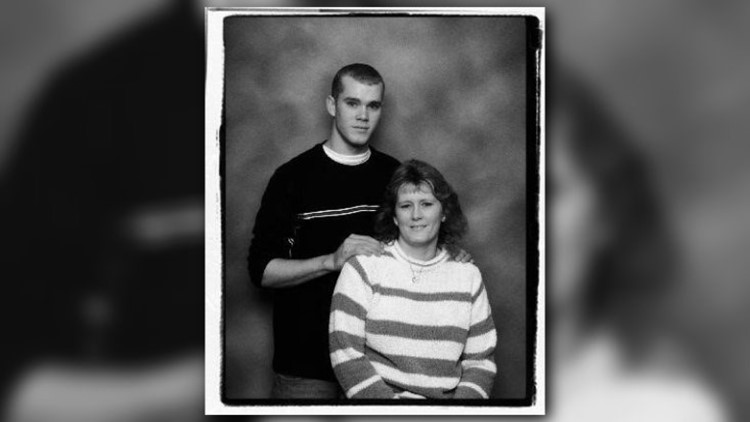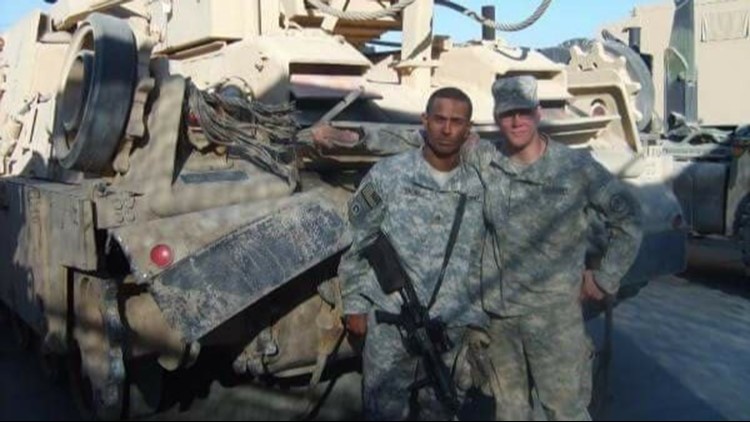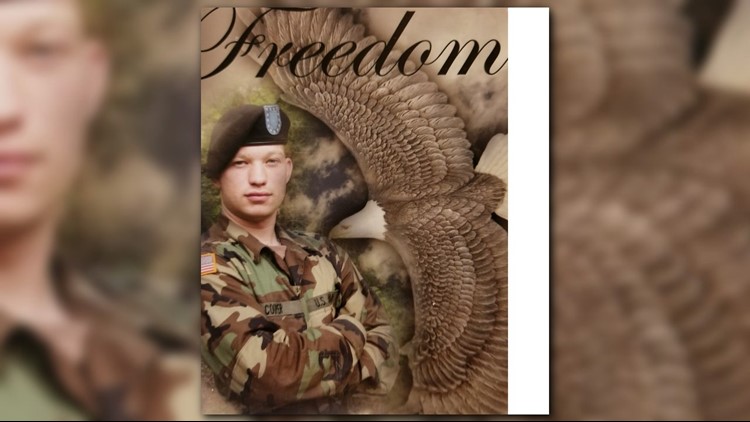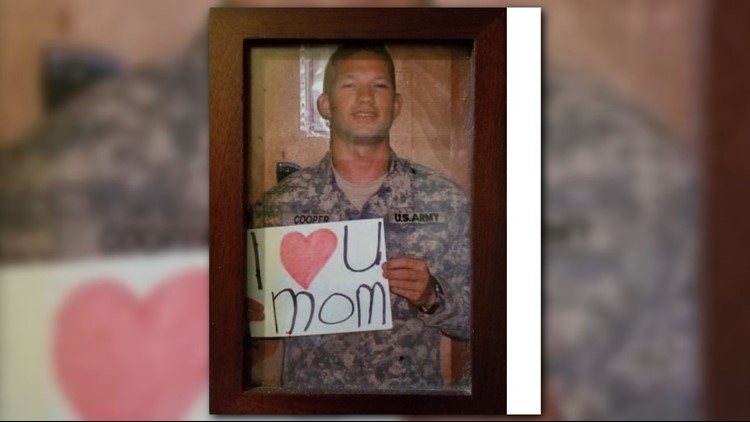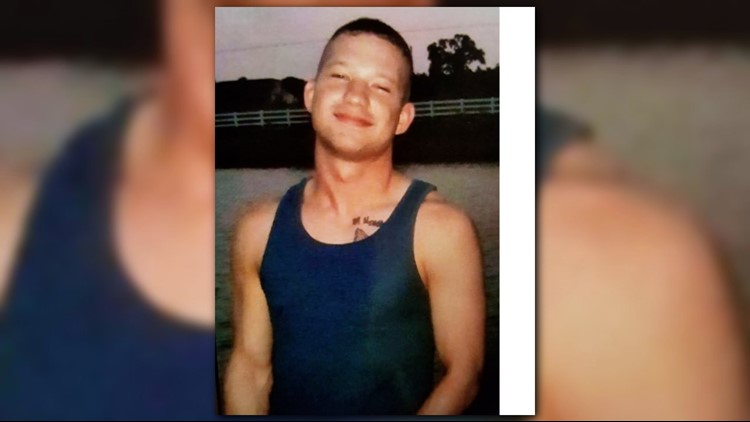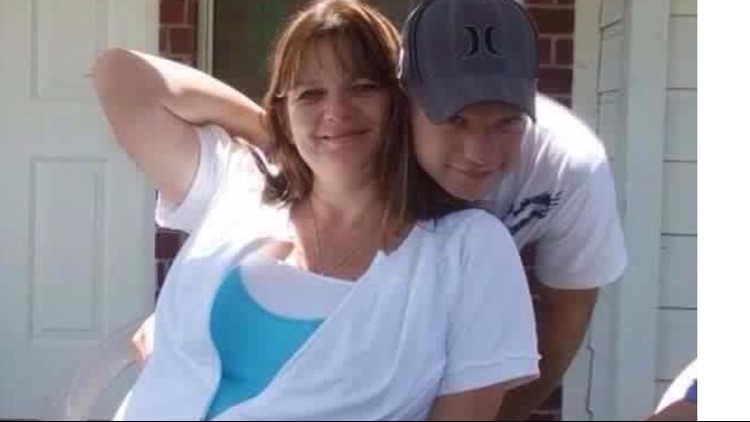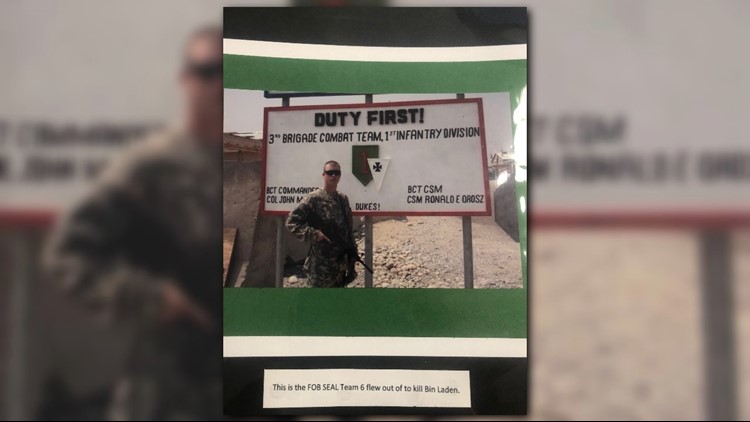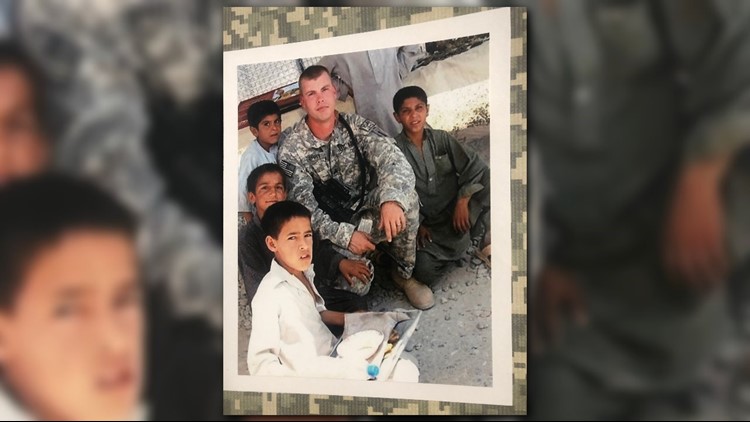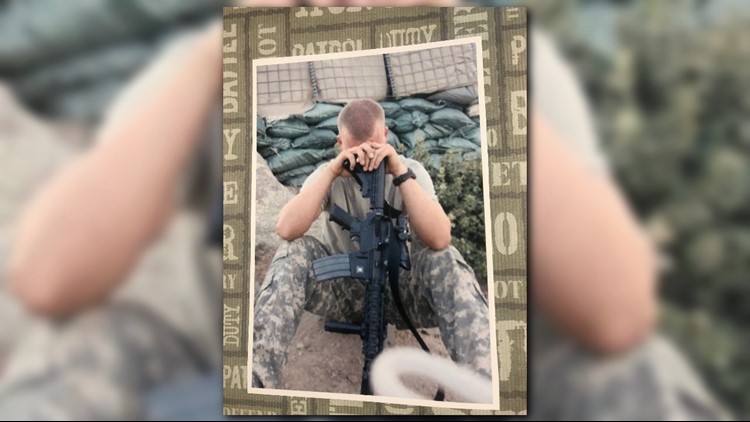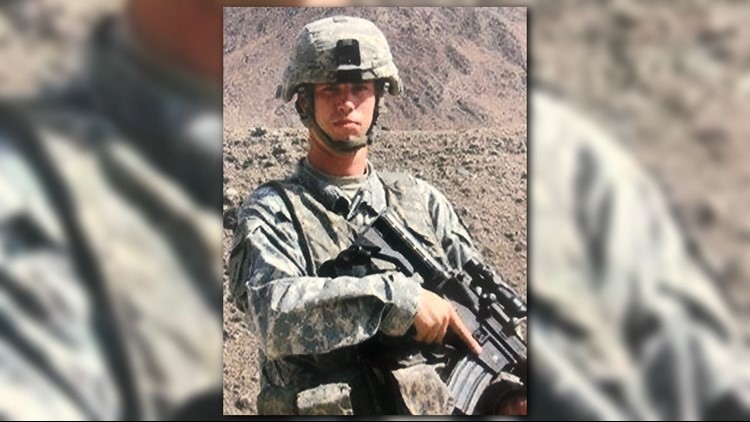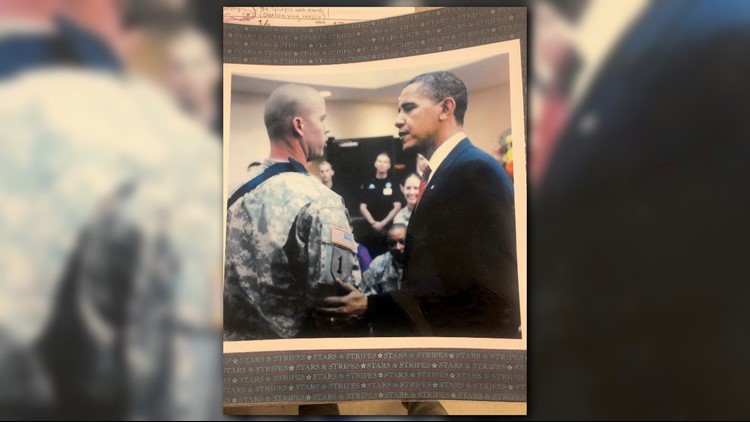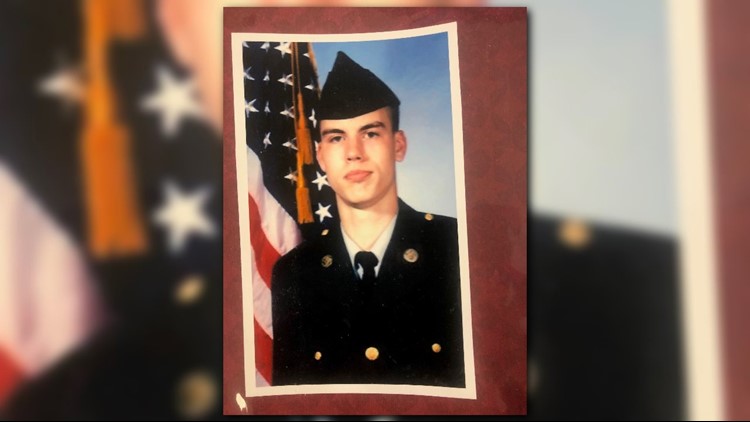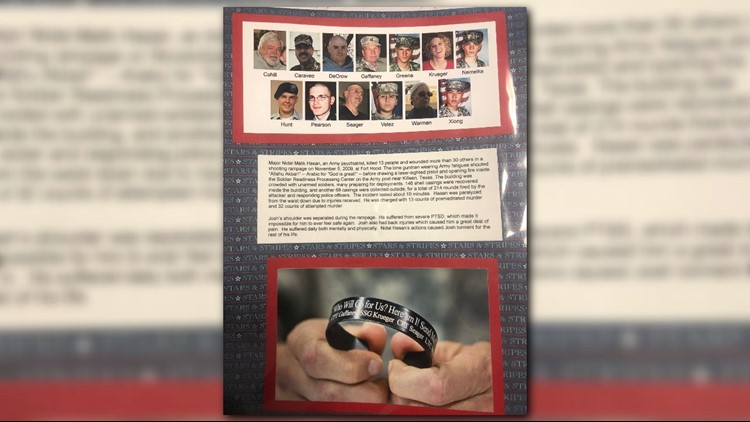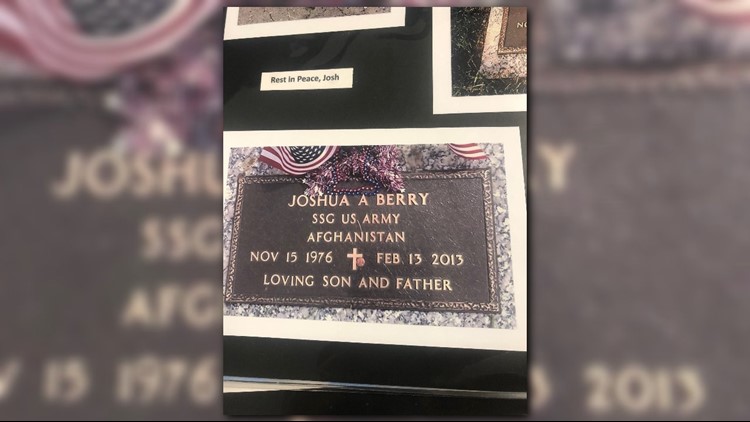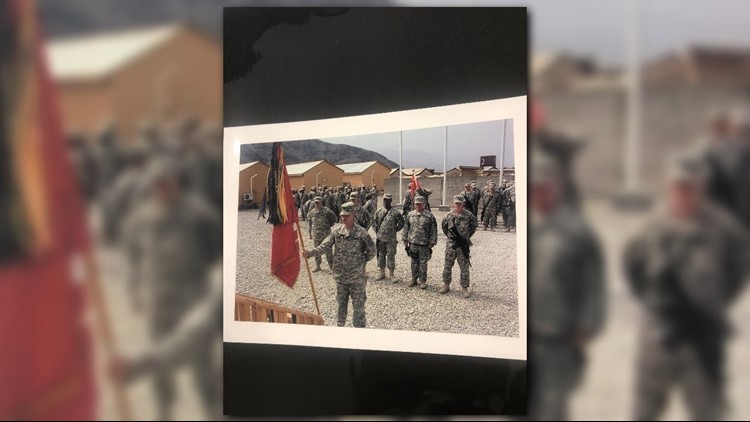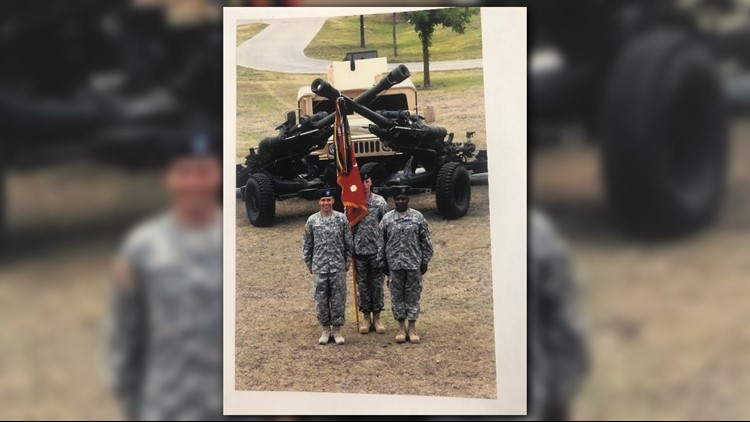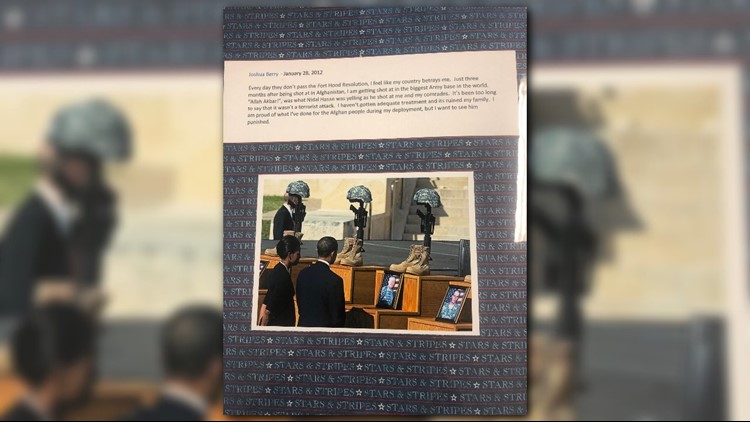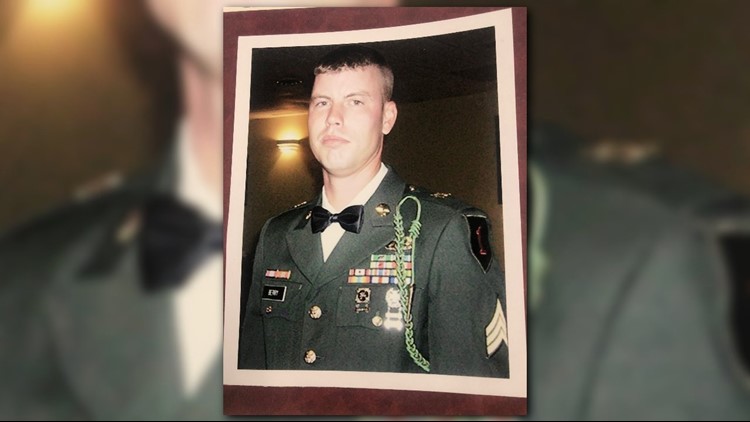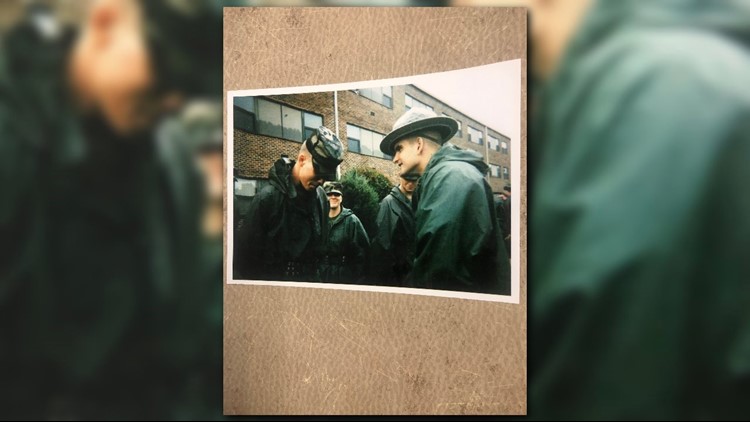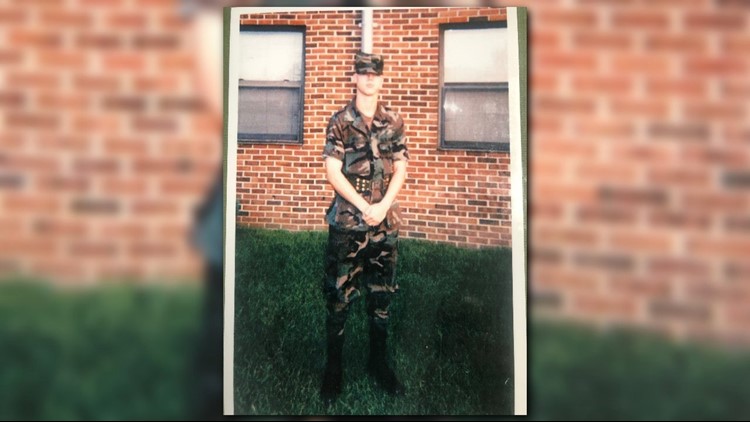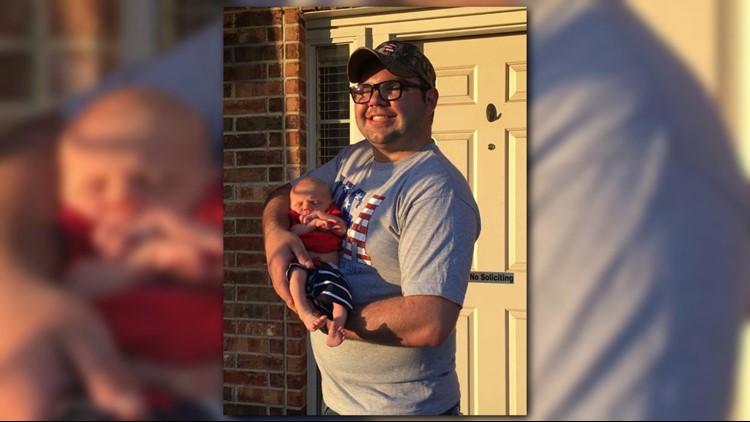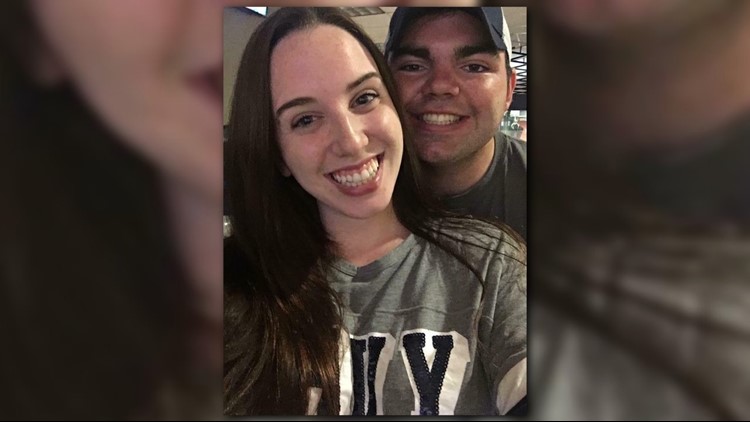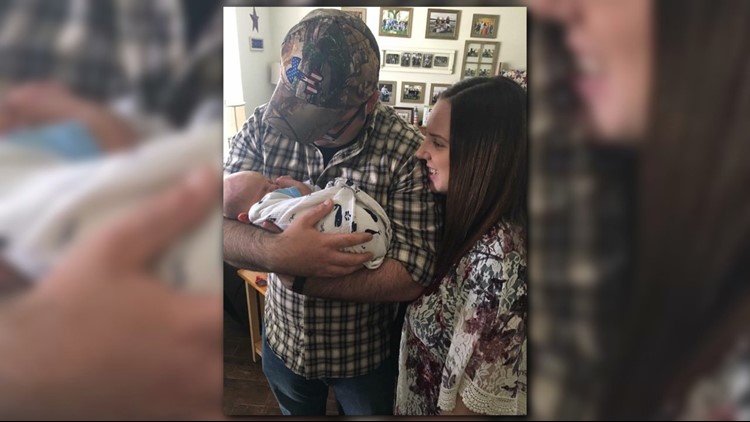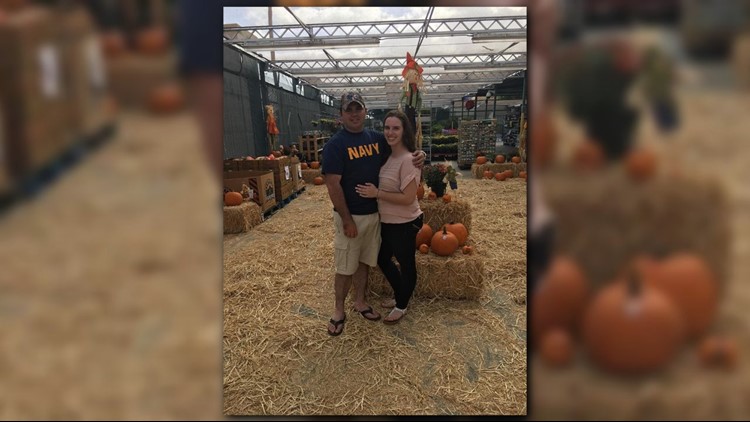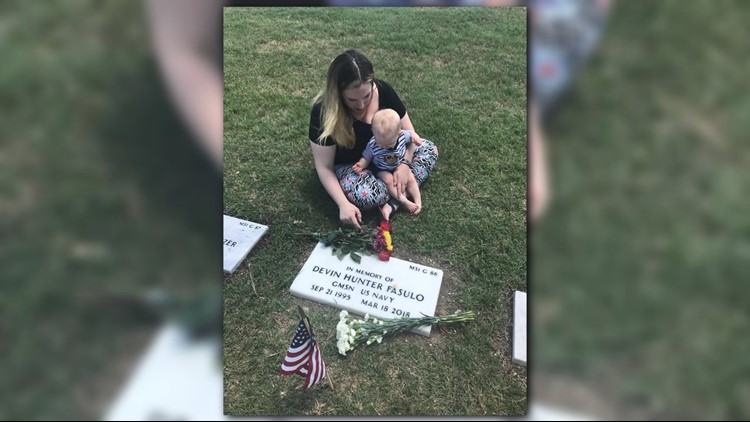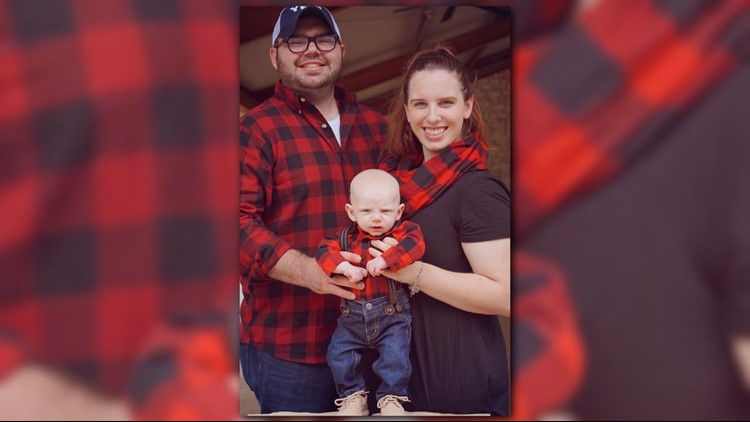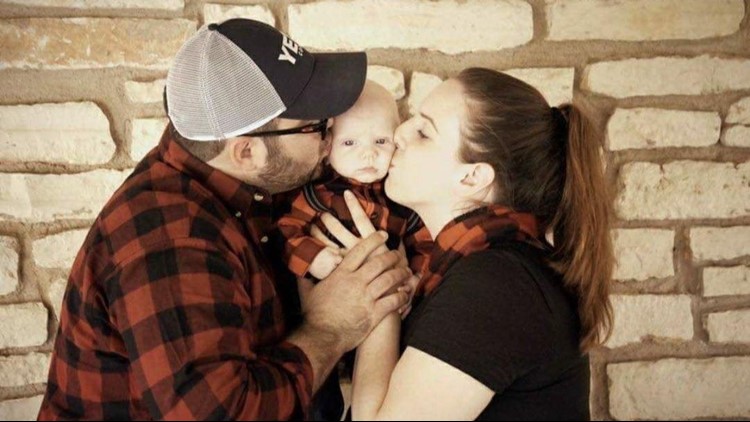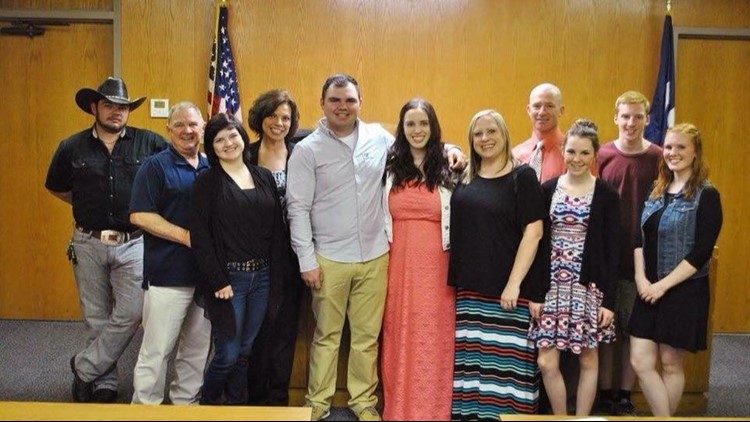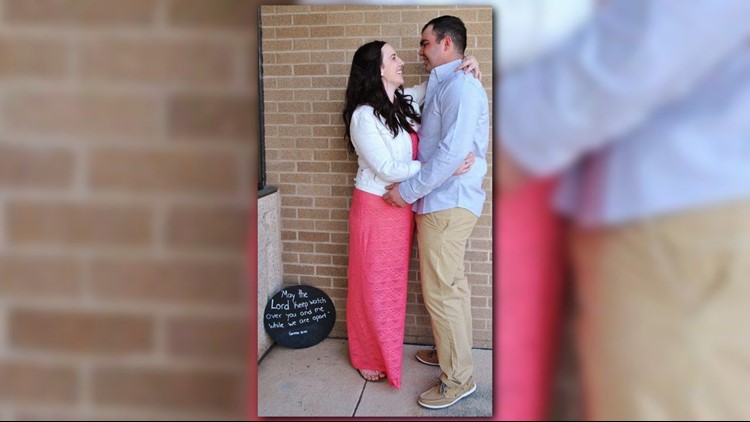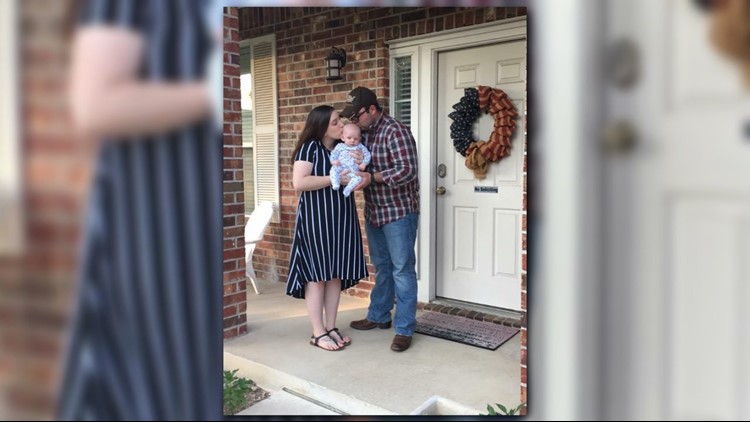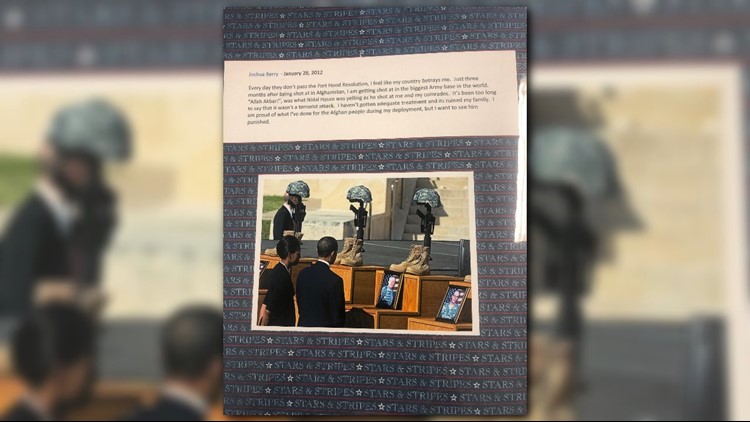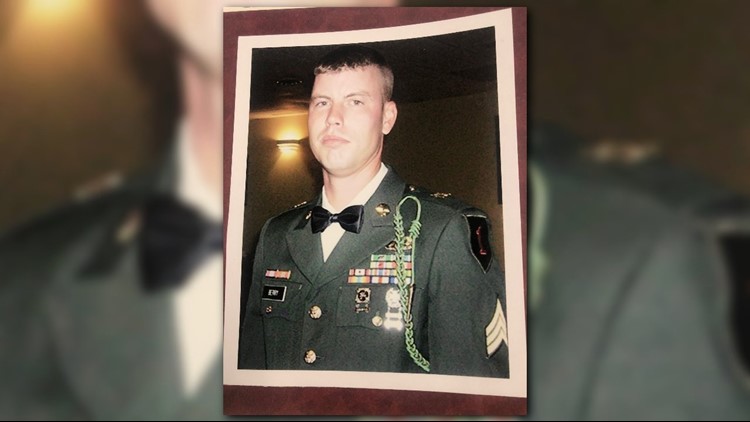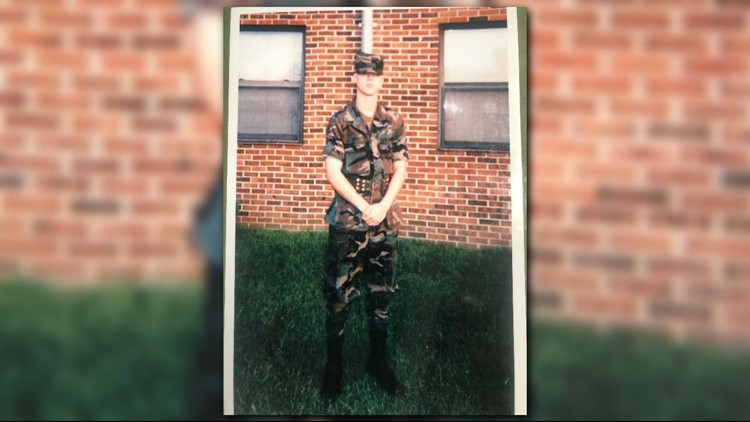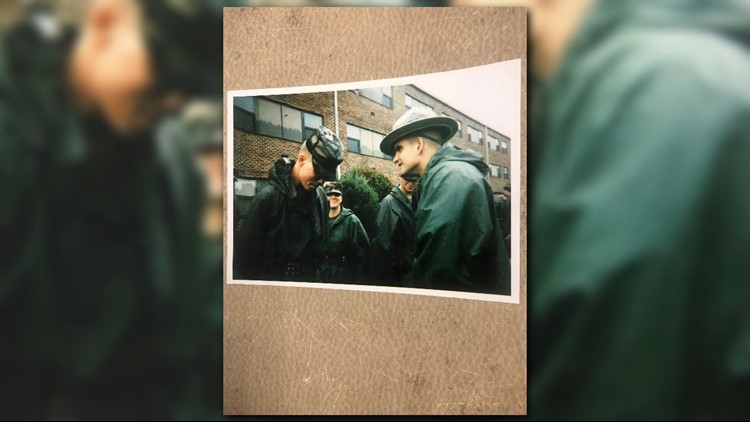CENTRAL TEXAS — On this Veterans Day, we’re taking a closer look at an epidemic affecting military communities across the nation: Suicide.
KCEN’s Leslie Draffin spoke with six families affected by military suicide. These are their stories of loss and their message of hope.They are stories told too many times: Stories of heartache, grief, and pain.
“He left a message. He said, ‘I love you all, sorry,’ and I knew he was dead," Roberta Kilpatrick said about her son, Marine Corps Cpl. Todd Hawk. He committed suicide on April 27, 2013.
Marine Corps Cpl. Todd Hawk
"He hid it so well. There were signs but I knew nothing about PTSD," Sheri Johnson said.
Her son, Army Spc. Trever Gould, took his own life on June 21, 2012.
Army Spc. Trever Gould
Laura Moody was at work with her son, Army Spc. Christopher Cooper, when he shot himself on April 27, 2016.
“I exist. I’m numb. I’m not the same for sure,” she said.
Army Spc. Christopher Cooper
In front of the city of Killeen’s memorial to those killed and injured in the first Fort Hood shooting, 660 flags waved in honor of every veteran and active duty service member lost to suicide.
Howard Berry organized the flag tribute in honor of his son, Army Sgt. Joshua Berry, who killed himself Feb. 13, 2012.
“I’m a no star father. We have gold star families and the gold stars the way it's explained to me that’s to honor the sacrifice made by the families of those killed in combat," Berry said. "Families like mine don’t exist.”
Army Sgt. Joshua Berry
The Department of Veterans Affairs said suicide rates among veterans are slightly down overall; however, suicide rates among veterans ages 18 to 34 have risen drastically over the last ten years. The rate went up ten percent from 2015 to 2016 alone.
Navy Gmsn. Devin Fasulo was just 22 when he committed suicide this year on March 18. His wife, Jordyn Fasulo, said when he returned from a nine-month deployment with the Navy, she knew something was wrong.
“He just started crying, he had a break down out of nowhere," Fasulo said. "He's like, ‘I just see all these faces I can't get it out of my head. I’m playing it all over and over again.'”
She begged him to get help, but he resisted. She said he was worried it would negatively impact his career.
When Jordyn Fasulo became pregnant, things grew worse between the husband and wife. Since Devin Fasulo was in training, Jordyn Fasulo went home to Harker Heights to have their son, Wyatt.
When the family reunited, what should have been a happy time, turned to turmoil.
“Things just kept getting worse. It progressed really bad, so I moved back to Texas in November 2017 just after being together for a week honestly," Fasulo said.
Navy Gmsn. Devin Fasulo
In the weeks that followed, Fasulo said she believed things were looking up. She said they were working toward restoration, and even planning a vow renewal. Then, Devin took his own life.
“Regardless of what was going on with us, he was my husband and the father of my child," Fasulo said. "Now my child doesn't have a father that he’ll ever get to know, and I just feel like my entire future was wiped away when he lost his life that was supposed to be my everything, you know?”
Victor Trujillo knows firsthand how many of these stories end. The Army veteran spent 24 years in the military, many as a police officer responding to suicides. He can remember countless stories of veterans and active duty military members taking their own lives.
The one that still weighs on him, is the death of his friend.
"He wanted to die, but he didn't want to do it. So, he fired on us in patrol. He ended up getting shot three times," Trujillo said. "After he was shot, I remember him screaming ‘I don't want to die!’ But he passed away, you never forget that."
The loved ones will never forget their tragic losses. They hope sharing these stories will inspire people struggling with mental health to reach out for help.
“Never give up. Always talk to somebody, no matter who it is,” Moody said.
“One life is one life," Johnson said. "One life is worth everything.”
Johnson turned her personal pain into action. She started the Trever Gould Soldiers Help Project to help veterans and active duty military members through tough times.
If you or someone you know is a veteran in need, call the Veterans Crisis Line at 1-800-273-8255 and press 1.
Recognize the signs of suicide risk:
- Thinking about hurting or killing yourself
- Looking for ways to kill yourself
- Talking about death, dying or suicide
- Self-destructive behavior such as drug abuse, weapons, etc.
If you or someone you know is experiencing any of these, please seek immediate attention.
Call the Veterans Crisis Line if you or anyone you know is experiencing these warning signs:
- Hopelessness, feeling like there’s no way out
- Anxiety, agitation, sleeplessness, mood swings
- Feeling like there is no reason to live
- Rage or anger
- Engaging in risky activities without thinking
- Increasing alcohol or drug abuse
- Withdrawing from family and friends

